14 recruitment fails: Don’t end up on this list of bad job ads

Examples of bad job ads are a popular feature of one-time Workable VP of Customer Advocacy Matt Buckland’s Twitter feed. Some of them might make you chuckle, others might frustrate you with their blatant crudeness. We’ve compiled the best (worst) of these recruiting fails here.
And the underlying message? Learn from the worst job ads so you can make the best. Without further ado:
Contents
1. Those who grew up poor need not apply
Who were they trying to hire, the candidates or their parents? Basing hiring decisions on whether the candidate’s mother is the CEO of a multinational firm or a dishwasher in a local restaurant is not only ethically wrong – it’s potentially illegal depending on the jurisdiction. Regardless of where this series of questions came from – an interview template for a hiring team, a page from an online questionnaire, etc. – it’s still an example of what you shouldn’t and can’t ask when recruiting.
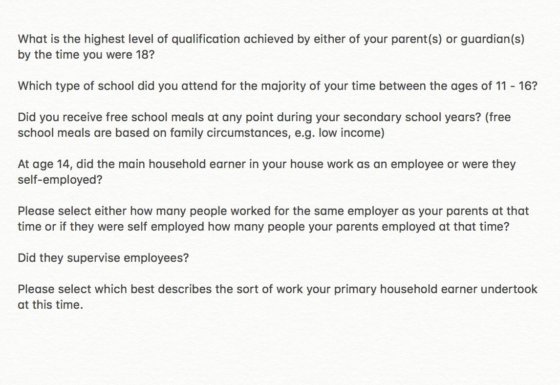
Instead, evaluate the candidate for their skills and experience, and avoid using arbitrary criteria.
2. The poster child for EEO violations (and bad job ads, too)
All in a single job posting, too. It’s enough to make a human rights lawyer’s head spin.
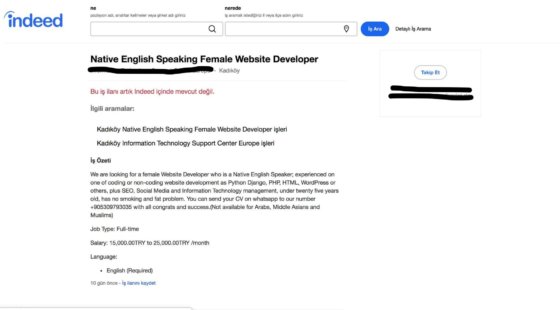
Make sure you know the law regarding language in job adverts. For example, if you’re in the U.S., take a look at the EEOC’s regulations and learn more about EEO in general. In the UK, look at the regulations in the Equality Act 2010. Consult a legal counsel or an attorney if you’re not sure, but as a general rule, don’t say anything about race, national origin, religion, gender, sexual orientation or disability.
3. Perking up instead of paying up
Fair enough – they get points for being honest about it, even if this is a total recruiting fail. But perks don’t put food on the table at home.
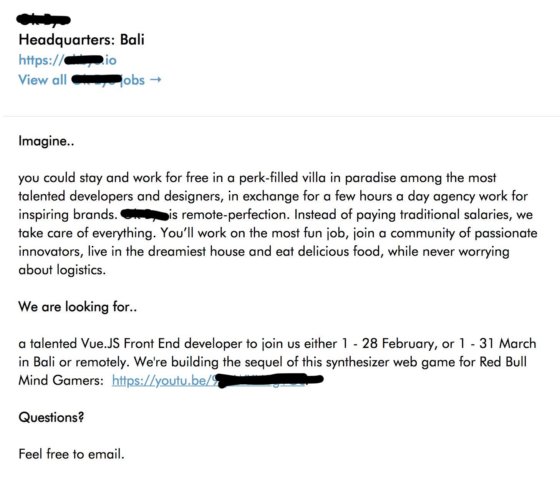
There’s no workaround to keeping employees happy: people need to get paid enough for them and their families to live comfortably. If they want to go on holiday in Bali, they’ll do it themselves by spending their salary.
4. Jack of all trades – including massages
This is just one of the worst in the list of bad job ads. The “Boss” (yes, capital ‘B’) wants a massage? Well, let them find a professional masseur and pay them for their services. Want someone to occasionally do cooking/cleaning/housework? Then hire a damn housekeeper.
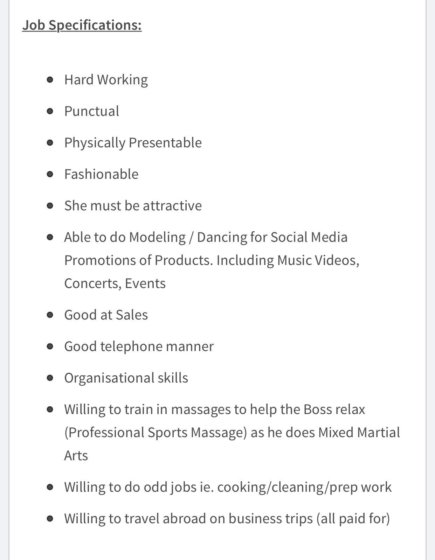
You probably won’t be that offensive in your job ad, but there’s a lesson here about asking only for job-related skills – and making sure the job description is relevant to the job you’re hiring for. Also, phrases like “take up other duties as needed” might be misconstrued.
5. Guilt-tripping by invoking the Holocaust
Even today – in Germany of all places – someone was saying the mindset of higher salary over “values” was the reason for one of humanity’s worst atrocities. Was it shock value they were going for? Or were they just so frustrated about not being able to hire people that their feelings poured out the wrong way?

The lesson: Keep it cool and positive when you’re reaching out to candidates – after all, they’re unlikely to agree to work for you because they care about your recruitment difficulties. And, though it should go without saying, don’t insult the memory of World War II victims.
6. Girls, girls, girls
Evidently, not just a Motley Crüe song. Talk up the office vibe all you want as part of your appeal as an employer, but when you start highlighting the fact that there are French, Italian, and Spanish female “junior” developers working in the ranks, then you’re just being creepy.
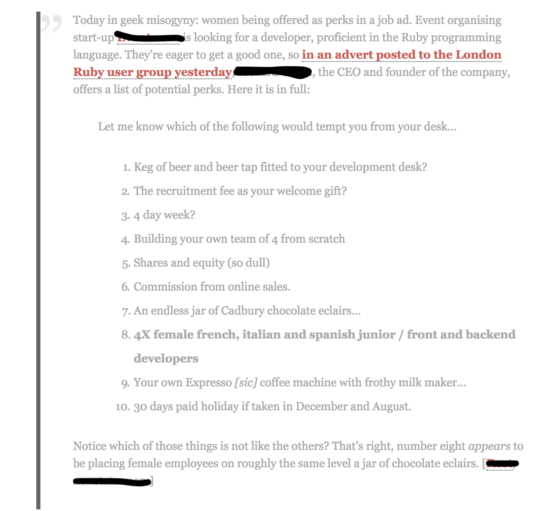
Want to advertise the diversity and gender balance of your team? Great, say that.
7. We think you’re stupid
Talking to candidates like talking to moody teenagers is a major recruiting fail. I mean, who needs to be told not to burp at work?
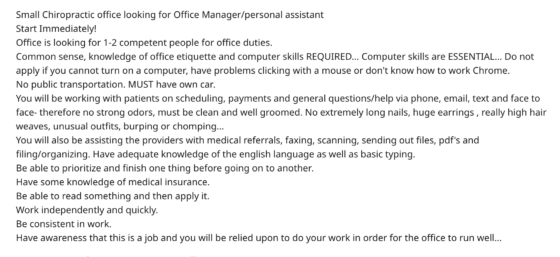
The rest of us can learn from this extreme example, too; we may all get condescending sometimes without meaning to. So, if you’re tempted to say to a candidate, “We trust you’ll work hard”, or “Be passionate or don’t bother applying”, think twice.
8. Three hours of free time is all you need
Hey, at least you get to go home and play with your kids. Right? Right?! How much free time do you need anyway?
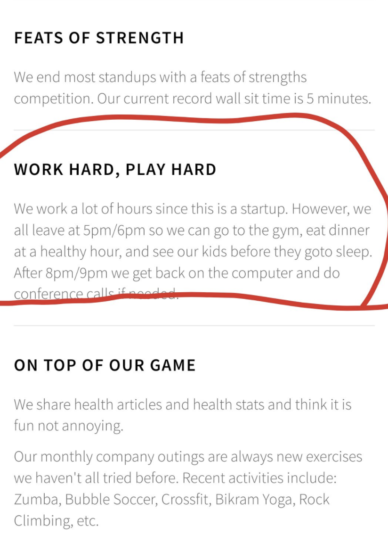
This is a culture problem. If you work long hours, days and nights, it’s best to be upfront about it (without bragging, of course). Yet, it’s not what will make a company successful and sustainable in the long run. We all need time to relax and unwind, and there’s growing concern about the effects of employee burnout.
9. What do you mean, you have a normal life?
Honestly, if someone was going through a hard time in their life, be it health or personal issues, they wouldn’t be applying for such a job in the first place.
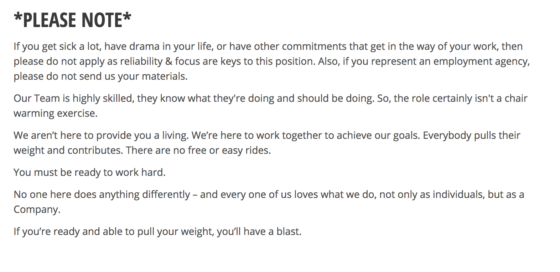
We talked about being condescending in #7 above. This one is also a recruiting fail of the highest order. Employees have a life whether you like it or not – forcing them to detach themselves from it when they come to work can only backfire (high turnover is very probable and can be very expensive.)
10. Who’s a free rider now?
There’s an opportunity to assess your candidate’s skills for the job via a formal assessment process, and you can, of course, prompt the candidate on what ideas they can put on the table for a specific scenario as part of that assessment. But then there’s this.
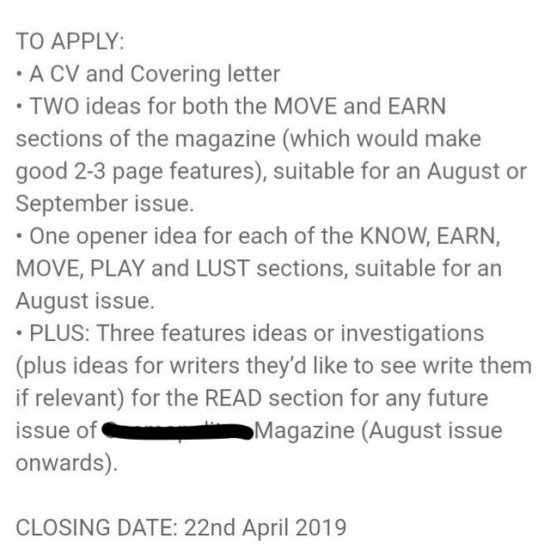
Avoid asking for free work as part of the hiring process, period. If you’re using work samples and assessments, ensure they don’t look like an actual, ongoing project, and be clear with the candidate as to the purpose of these assessments – which is to assess the candidate’s skills. If you want to evaluate candidates in a real-life situation, pay them a fee.
11. Free labor, heavy ethical cost
Depending on the size of your business, a couple of interns can bring a lot to the table, and you’re servicing the community by developing its younger talent. But interns here, interns there, interns everywhere? You’re just asking for unpaid work.
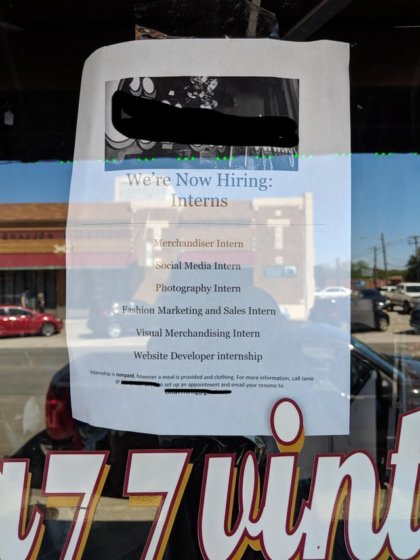
Just don’t.
12. 30+ years of Facebook experience
10 years of marketing experience? 3-5 years of work in automobile repair? 5-10 years in the accounting field? Sure, those all make sense. But this one is woefully uninformed.
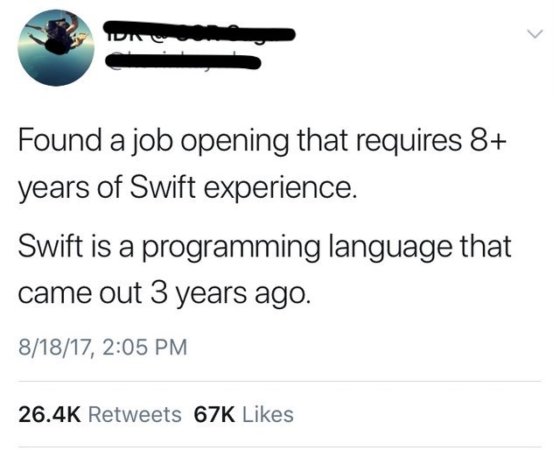
It’s a good idea to run the job ad by someone else before you post it, be it a department head, your own manager or someone who already does the job you’re hiring for. Also, if you use job description templates, be sure to modify them to fit your company and the role.
13. Sending a bill for interviews
If this example seems petty, it’s because it is. Some candidates lie or embellish in their resumes – some of those do it a lot. That’s because they want to find a job where they will be paid. Sorting through these candidates is a risk that employers should be willing to take in order to find the best candidate out there.
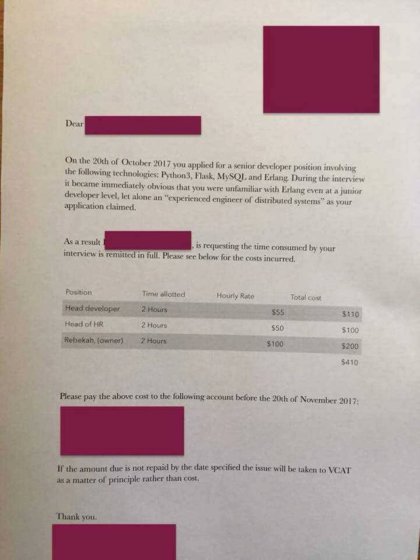
You may not ask for money whenever you catch your candidates in a lie, but have you ever been rude or dismissive to them? Or have you ever been tempted to tell a candidate off if they don’t answer a question correctly or don’t even show up in their interview? This might happen to the best of us. In any case, try to keep it professional and let the candidate down easily. This can only be good for your employer brand.
14. The Vietnam-era drill sergeant
You’d think this person attended the Sergeant Gunnery Hartman School of Recruitment. They probably didn’t, nor are they hiring for conscripts. They just need to get off their high horse.
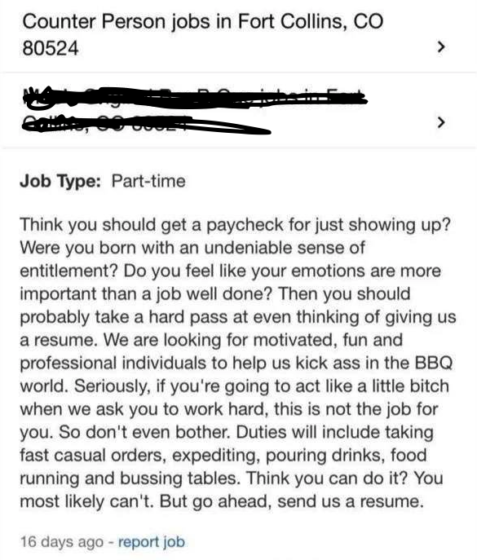
It’s another example of insulting, condescending language toward candidates. Speak to them with respect and care. Otherwise, you’ll see your talent pool reduced and your employer brand badly hurt (and you’ll probably be featured on articles about bad job ads – like this one).
Frequently asked questions
- What makes a job description bad?
- Job descriptions should be clear and concise so recruiters can find the best talent for a company's job posting. If this isn't possible, it may result in them issuing another request or not placing anyone into an available position at all because of how complicated these things get when written poorly.
- Is a job description legally binding?
- The job description is key information for employees, but it's not required by law. However, your employer should give you details about what your responsibilities will be on day one in a written statement.
- Can my employer make me do something that is not my job description?
- Yes, your employer may assign you tasks not specifically outlined in the job description. However, there are limitations. Additional tasks should be assigned without violating labor laws or collective bargaining agreements.




